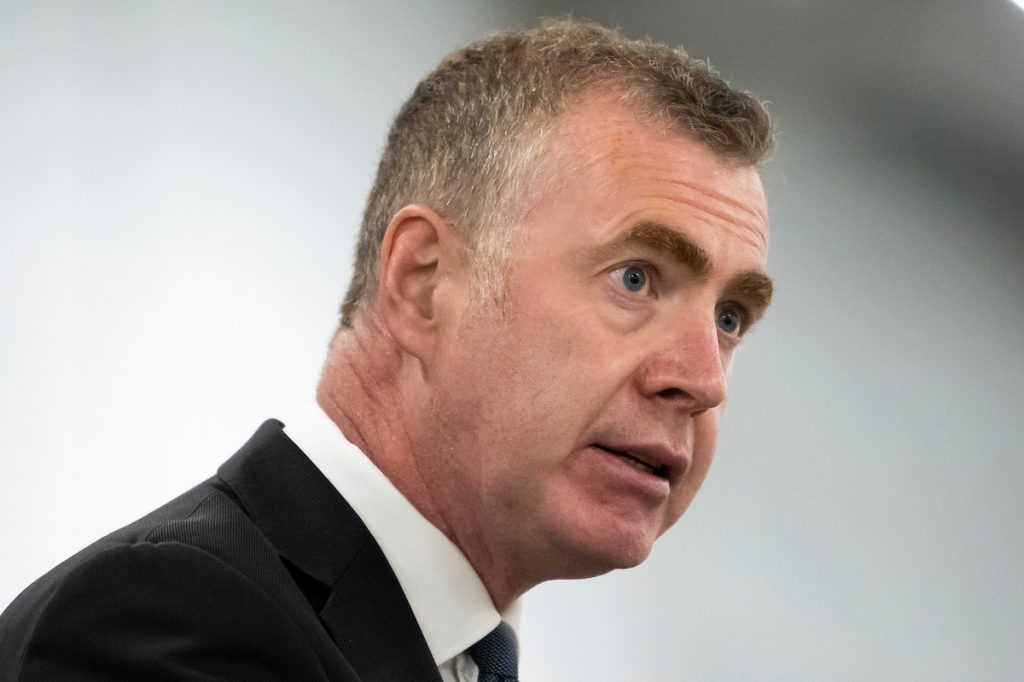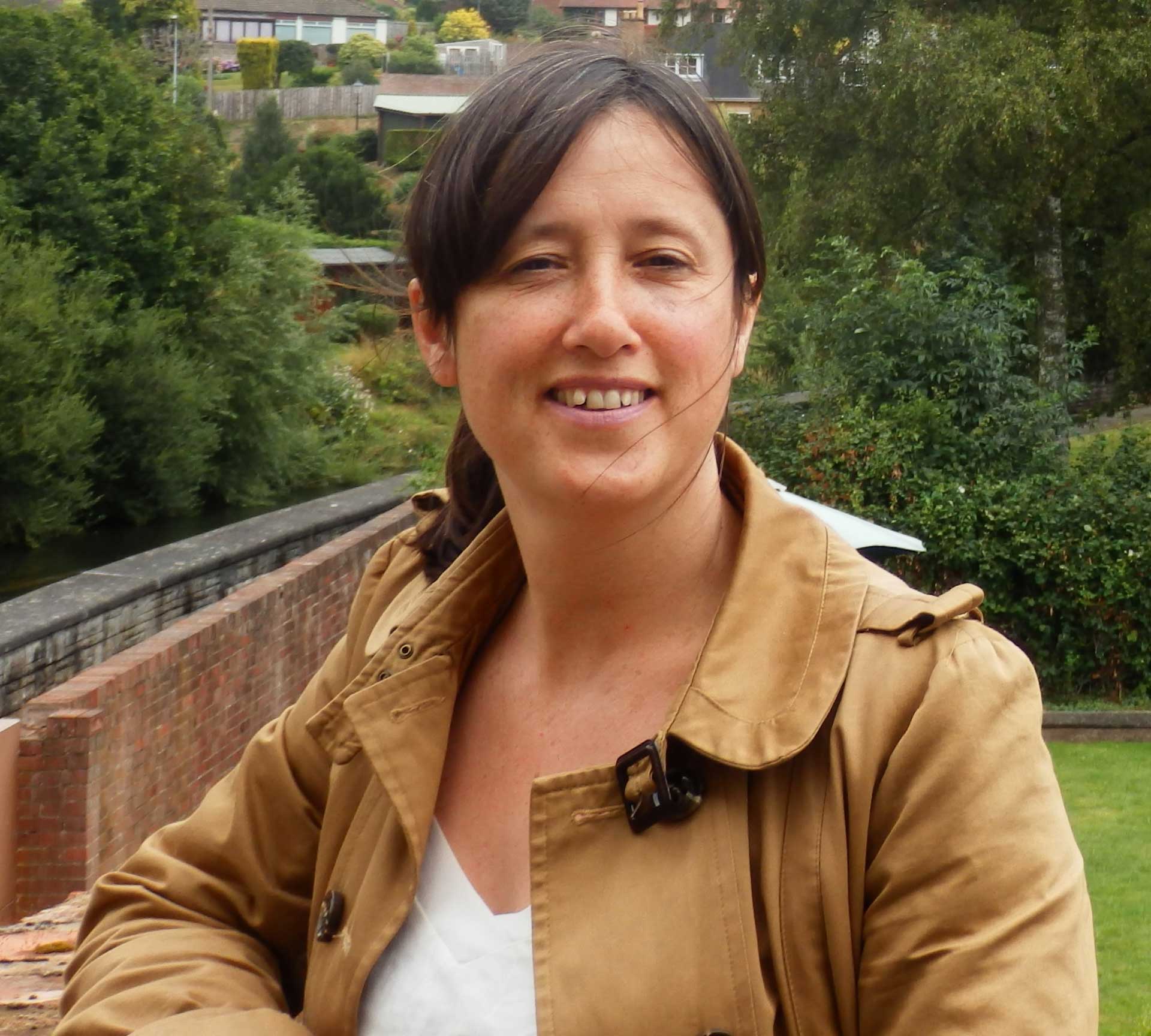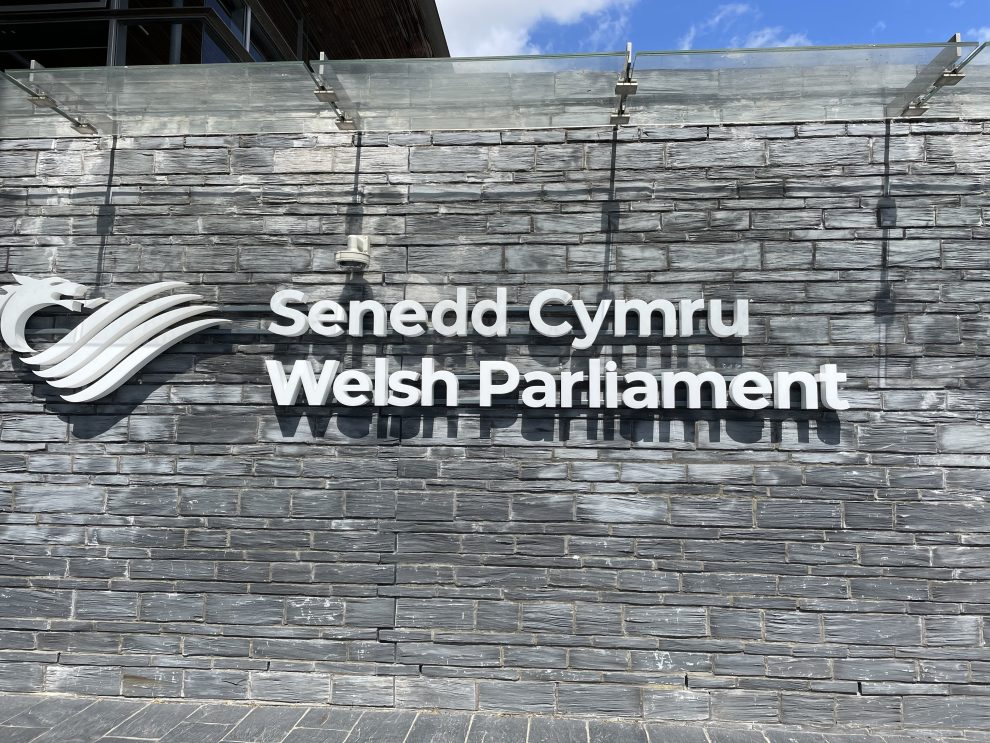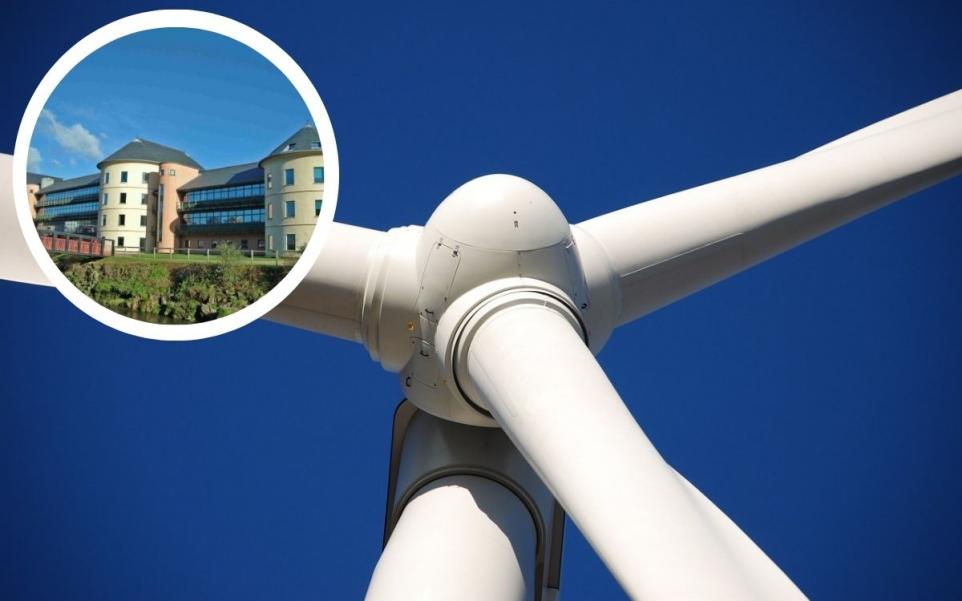Politics
Manifesto Destiny #3: Plaid Cymru

PLAID CYMRU is perpetually standing at a political crossroads.
One step forward. One step back. Followed by a step to the left and a half-step to the right.
And that’s been the way of it since 1999.
When a party’s policies consistently score well with the public, yet the party doesn’t increase its number of seats, there’s an indication some deep-seated issue prevents a breakthrough.
In the parts of Wales where Plaid needs to win constituency seats, it has made little progress at the national election level in twenty-two years.
And yet its policies score well with many Labour voters. In the Valleys of East Wales, Labour’s core vote is not thrilled by that party’s record in Wales. It is soft at the edges and fed up with the same old formula. After twenty-two years of Labour government, Wales is stuck in a never-ending loop of narrow managerialism without political leadership.
PERCEPTIONS OF PLAID
The massive elephant in the room is that in Anglophone Wales – where Welsh is relatively little spoken or read – Plaid is seen less as the Party of Wales than the Party of the Welsh Language.
Running in tandem with that notion, which is supported by census data about the distribution of those with Welsh language skills, is the electorate’s perception that Plaid considers the Welsh language first and all other policies second.
To an extent, the second point is projection. People project on to Plaid what they know of Anglo-parties’ history and attribute to the Party of Wales what they know of other parties’ conduct. In Westminster, the Conservatives are a byword for back-scratching cronyism. In Wales, the Labour Party – see Neath Port Talbot Council – fulfils the same role.
Based on those experiences, the internal logic is that Plaid would prioritise the language – ‘forcing it on non-Welsh speakers’, using the English-only pejorative phrase – above good governance and good sense.
For a significant number of Wales’ voters, even among some who speak Welsh, the Welsh language is irrelevant to their political considerations.
It’s a stick with which voters beat Plaid and one which the other parties deploy.
SMALL ‘C’ CONSERVATISM
Wales is a small ‘c’ conservative country.
The rout Labour suffered in parts of Wales in December 2019 demonstrates, no matter how much activists howl, large sections of the electorate do not share Plaid and Labour’s vision of the nation. At least not when and where it counts.
And Plaid, determinedly, is a party of the left with less in common with many of its voters than it might find comfortable to acknowledge. Plaid Cymru’s contortions to satisfy a largely metropolitan interest in identity politics estrange its traditional voters with more grounded priorities. And whatever votes there in those contortions, they won’t add a single seat to Plaid’s tally.
That said, it’s grossly unfair to suggest that identity politics define Plaid Cymru. Plaid’s primary problem is marking out an identity for itself, including all Welsh nationalist sentiment instead of one part of it.
Those small ‘c’ conservatives among the Welsh electorate favouring greater Welsh autonomy should be inside Plaid’s tent. They should not feel excluded from it because they have views that irritate Party activists.
The issue of perception is perhaps Plaid’s most significant hurdle to overcome with the broader Welsh electorate. It certainly has been to date.
COMMUNICATION
For a party with so many gifted communicators both inside and outside the Senedd, and a leader who is a compelling public presence, between elections, Plaid’s communications seem a little diffuse and inclined to contrarianism for the sake of it.
Election campaigns start the day after the last election finished.
Plaid needs to spend more time driving home its core manifesto pledges on everyday issues, whether in government or not.
This time Plaid’s manifesto is admirably focused on what it wants to achieve if it forms a government.
It needs to stick to those lines as hard as possible, even if it is either not in government or in government in a joint enterprise with Labour.
Plaid also needs to accept that whatever its electoral fate on May 6, not everything it wants to do will be deliverable.
Plaid calls its manifesto ‘the most radical since 1945’. This article doesn’t make a judgement on that claim. However, 1945’s Labour manifesto came in at under 5,000 words and barely 11 pages of A4.
Plaid’s five core policy areas are interwoven in the detail of its manifesto.
A more concise document (126 pages!) that preached less to the choir and more to voters would improve it no end.
THE CORE POLICIES
As Adam Price told The Herald when he became leader, the core of Plaid’s programme boils down to five key policy areas.
1. The best start in life for every child
· Free school meals to all primary school children using quality Welsh produce.
· Investing in 4,500 extra teachers and support staff, reducing class sizes, and valuing the teaching profession.
· Childcare free for all from 24 months.
2. A plan for the whole country to prosper
· A £6bn Green Economic Stimulus to help create 60,000 jobs.
· A guaranteed job or high-quality training for 16–24-year-olds.
· Zero-interest loans to support small businesses to bounce back post-Covid.
3. A fair deal for families
· Cut the bills of average Council Taxpayers, helping the weekly budget go further.
· £35 per child weekly top-up payment to families living below the poverty line.
· 50,000 social and affordable homes and fair rents for the future.
4. The best national health and care service
· Train and recruit 1,000 new Doctors and 5,000 new Nurses and allied staff.
· Free personal care at the point of need for the elderly, ending the divide between health and social care.
· Guaranteed minimum wage of £10 an hour for care workers.
5. Tackling the climate emergency
· Set a Wales 2035 Mission to decarbonise and to reach net-zero emissions.
· Establish Ynni Cymru as an energy development company with a target of generating 100 per cent of electricity from renewables by 2035.
· Introduce a Nature Act with statutory targets to restore biodiversity by 2050.
In principle, none of the above should be particularly contentious. The climate emergency and green energy pledges will not play well among older voters. However, the environment is an issue that resonates with younger voters (aged 16-24).
Of Wales’ three main parties, Plaid has the most to gain from younger voters and mobilising them to turn out. It’s a mystery why Plaid hasn’t both encouraged younger voters to register and targeted them more assertively. Doing so would deliver a USP and a future voter base.
PAYING FOR IT
Ynni Cymru, a Welsh national energy company, is an idea Plaid floated at the start of the last Welsh Parliamentary term. It has re-emerged in a much-changed form from that originally floated. Instead of controlling green energy production, Ynni Cymru would be a staging post, a project development company similar to Transport for Wales.
The long-term aim is the establishment of a state-backed energy company.
Unnos –Land and Housing Wales – would be a clearinghouse for investment in funding affordable and social housing in the same vein.
Extending the state will come at a cost.
More public spending needs more money. That money can only come from raising taxes and more public borrowing. Plaid’s reliance on historically low interest rates to fund its plans glosses the certainty of future interest rises and their impact on those plans’ deliverability.
Plaid is at least upfront that – if it forms a government in its own right – some people will pay more tax in one way or another. And, at least, it confronts the issue of Council Tax head-on instead of pussyfooting around it like Labour. After 22 years, Labour intends to have a jolly good chat about it for the next five years.
For which reason, if no other, Plaid deserves a round of applause.
INDEPENDENCE DAY
Independence. Plaid is in favour. It promises to hold a referendum on independence if it forms a majority government.
Of all Plaid’s policy pledges, that’s the least surprising.
Surprisingly, Plaid has not – so far – managed to convert the upswing in public support for Wales’ independence into a larger poll share for itself. Unless that changes in the last couple of weeks of this election campaign, Plaid needs to ask itself why that is the case.
News
Too many children in Wales living in poverty – Lib Dems want action

THIS week in the Senedd, the Welsh Liberal Democrats renewed their demands for the implementation of child poverty targets.
According to a report from the Bevan foundation, 29% of children living in Wales are currently experiencing poverty (an estimated 190,000 children).
The same report highlighted that the largest percentage of children living in poverty are from working households or in couple households.
The Welsh Lib Dems are now renewing calls for the Welsh Government to create a set of targets for reducing child poverty, which the party argues will allow for more accountability.
The party has previously called for the implementation of targets, citing recommendations from the Calling Time on Child Poverty Report published in November last year.
Commenting, the Leader of the Welsh Liberal Democrats Jane Dodds MS said: “The latest statistics on childhood poverty in Wales paints a very distressing image of families across the country struggling to make ends meet.
Over the course of the last six years, the proportion of children in poverty has skyrocketed. Fuelled by worsening economic conditions and a complete lack of action from both governments in Westminster and Cardiff Bay.
We cannot act complacent about these figures nor accept the clear lack of progress in fighting child poverty, behind each statistic is a child that the state has failed.
It remains painfully clear that the Welsh Government is failing to make any meaningful progress in this fight, which is why they must follow through with the implementation of clear set targets that will allow for further accountability.
We as a party have continuously called for the creation of these targets and we will not be silenced. For the sake of future generations we urge the Welsh Government to listen.”
Education
Conservative calls for academies and free schools rejected by Senedd

THE SENEDD has rejected calls to introduce free schools and academies after a report found major challenges in Wales’ education system.
Tom Giffard led a Conservative debate on educational attainment, warning that Wales is consistently at the bottom of UK-wide league tables.
The party’s new shadow education secretary pointed to an Institute for Fiscal Studies (IFS) report on education in Wales which found low outcomes and high levels of inequality.
Mr Giffard told the Senedd the IFS report highlights the pitfalls of the Welsh Government putting all its eggs in the basket of a skills-based approach.
Criticising a failure to measure skills inequalities and pupil progress, he stressed that Wales’ lower performance is due to policy and approach rather than funding or the pandemic.
He said: “It seems the Welsh Government relies on Pisa results to tell the story but then, when those same results are all too disappointing, they are dismissed in equal measure.”
Mr Giffard, who previously worked in a primary school, said declines in Pisa results can be observed in almost every country that has adopted a skills-based approach.
Raising concerns about disappointing Pisa results, the South Wales West MS pointed out that Wales saw the lowest scores in the UK for every subject.
Heledd Fychan, Plaid Cymru’s shadow education secretary, warned that Wales’ schools are understaffed and facing difficult decisions due to budgets being at breaking point.
She criticised implementation of the Welsh Government’s additional learning needs (ALN) reforms, saying schools cannot realise the aims without the budget to bring them to life.
Ms Fychan said Plaid Cymru agreed with much of the Tory motion but her party would not support calls for free schools and academies.
Sam Rowlands described the IFS report as damning, warning that the Welsh Government’s education reforms have been disastrous and have widened inequality.
The Tory MS claimed the reforms are systematically holding back disadvantaged children, saying: “The most remarkable fact is that the performance of disadvantaged children in England is either above or similar to the average for all children in Wales.”
Mr Rowlands added: “The poorest in England’s schools are doing the same or better than the Welsh average, thanks to ambition, the academies and free schools.”
Samuel Kurtz, a fellow Tory, said free schools and academies have driven up standards in England as he argued a Wales roll-out provides an opportunity to improve outcomes.
James Evans, the Conservative MS for Brecon and Radnorshire, highlighted the party’s pledge to get 5,000 more teachers into Wales’ classrooms.
Buffy Williams, the newly elected chair of the Senedd’s education committee, said Wales is undergoing a profound transformation propelled by ALN and curriculum reforms.
The Labour MS for Rhondda stressed the importance of listening to teachers and allowing ample time for the reforms to take root in classrooms across Wales.
Altaf Hussain recounted a conversation he had this week with a headteacher at one of the largest schools in his South Wales West region.
The Conservative said: “The major improvements they have been delivering to attainment and addressing behavioural issues are all at risk because of cuts to funding.
“Vital work undertaken to improve the lives of young people with additional needs could be halted because they cannot afford to continue employing the support workers.”
Lynne Neagle recognised the scale and seriousness of work still ahead to improve Wales’ education system, stressing: “I am not, in any way, complacent about that task.”
Wales’ newly appointed education secretary, who takes over from Jeremy Miles, said sustained improvement in attainment will be among her top priorities.
She told the chamber: “My early focus has been to listen closely to schools and where it is clear that schools seek more scaffolding.”
Ms Neagle said the Welsh Government will work with trade unions and employers to reduce workload and eliminate unnecessary red tape.
The Conservative motion was voted down, 14-35, following the debate on April 24. The motion as amended by the Welsh Government was agreed, 26-23.
Climate
£1m turbine application to be decided by all councillors at County Hall

A TWICE-BACKED £1m scheme for a “20-storey-high” wind turbine at a Pembrokeshire mansion will have to be decided by all councillors.
Mr and Mrs Glen Peters of Western Solar Ltd are seeking permission for a single turbine on land near the Grade II-listed Rhosygilwen Mansion, which includes an arts and functions building known as Neuaddydderwen.
Members of the April meeting of Pembrokeshire County Council’s planning committee were recommended to refuse the scheme, despite backing it at their March meeting.
This backing meant the application returned to the April meeting for ratification after a ‘cooling off’ period; the application having been deferred at the January meeting pending a site visit.
It was initially recommended for refusal in January for several reasons, including potential harm to the setting of the Grade-II-listed house and grounds, and fears of threats to the safe operation of West Wales Airport at Aberporth in neighbouring Ceredigion, some 9.5 kilometres away.
The last concern was later withdrawn.
In papers ahead of the April meeting, officers, again recommending refusal, have said the scheme “would not protect or enhance the setting [of Rhosygilwen] but rather would result in significant harm to this interest of acknowledged importance”.
They have also warned any backing of the scheme against policy recommendations could set a precedent for similar developments.
-

 News7 days ago
News7 days agoPolice issue update on the search for Luke, missing from Pembroke Dock
-

 News2 days ago
News2 days agoPolice and air ambulances at ‘serious incident’ at West Wales school
-

 News6 days ago
News6 days ago20mph U-turn: Some roads will return to 30mph following public outcry
-

 Community6 days ago
Community6 days agoMiracle pup finds her forever home after heart-wrenching journey
-

 Crime2 days ago
Crime2 days agoPembrokeshire pensioner accused of 17 sexual offences against children
-

 Crime18 hours ago
Crime18 hours agoAll three school stabbing victims discharged from hospital, police confirm
-

 Community3 days ago
Community3 days agoCounty Hall to offer space for community banking
-

 Crime4 days ago
Crime4 days agoBrian Davis: Wanted on suspicion of commercial burglary
























